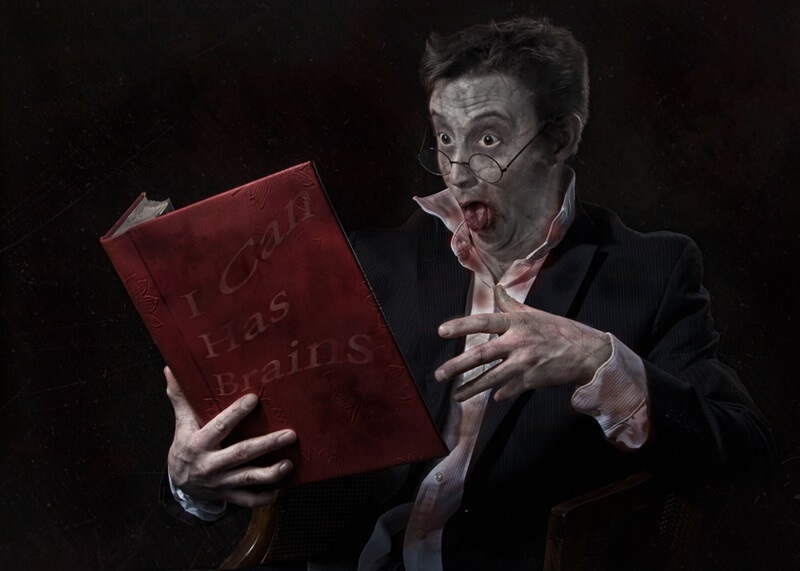
Few subgenres of horror elicit such a deep mix of fascination and discomfort as body horror novels and body horror books. These stories push fear past the supernatural and into the body itself. From grotesque horror fiction that warps flesh and bone to visceral horror reads that explore body transformation, this genre forces us to confront the most primal anxieties about vulnerability, decay, and identity.
Whether it is Kafka's The Metamorphosis, tales of mutation inspired by Cronenberg, or contemporary literary examples of horror writing, such as Nick Cutter's The Troop, the body horror novel is about more than shock.
The genre reveals something about the human condition that is more profound, even while it is often traumatizing or unpleasant. But what is it about the literature of horror that seems to compel us to visit the horrid corners of our world? Let's examine the anatomy of this unsettling genre.
At its most basic level, a body horror book engages with transformations of the human body in gross, uncontrollable, or just disturbing ways.
Whereas ghost stories or slasher tales focus on the bodily, body horror finds its strength in the intimate violation of the self.
One of the reasons that body transformation themes in horror literature hit so well is that they really remove the illusion of control entirely. Our bodies, vessels on which we rely, become foreign, faceless, or weaponized against us.
Through infection, mutation, or any other disfigurement, horror is derived from the notion of losing possession of one's corporeality.
From the disfigured being in Mary Shelley's Frankenstein to Clive Barker's visceral reads in Books of Blood, body horror literature flattens behavioral and physical terror into one horror modality.
It's a genre where fear is not just seen but felt.

What differentiates horror fiction from other varieties is the intentional grotesqueness of the human body, with the rationale of being repulsive yet fascinating. The grotesque is not about beauty; it's all about the shocking and strange, the symbolic.
Most body horror novels use grotesque imagery for more than just the element of disgust. It indicates internal struggle, social uneasiness, and the precariousness of humanity. For example:
Grotesque horror fiction encourages us to reframe horror as not simply a fear of death but instead that of aberrations. It takes the body and makes it both a symbol and a spectacle.
Visceral horror reads are stories that hit you in the gut, and I mean that literally and emotionally. These types of horrors are crafted through sensory detail, visceral emotion, and sheer physicality.
Books like Scott Smith's The Ruins and Agustina Bazterrica's Tender is the Flesh are both visceral horror reads that take readers into spaces that are both disconcerting and thought-provoking.
The body is no longer sacred; it is material, mutable, and alarmingly fragile.
What makes these body horror novels so compelling is how they reflect real-world fears: pandemics, disease, body image, and the loss of autonomy. In an age obsessed with perfection and modification, horror literature's body transformation narratives form a haunting mirror to our collective insecurities.
There's something almost paradoxical to the sensation of reading a truly visceral horror story-you want to look away, but you can't. That tension is the essence of the genre's power.
But why do we like body horror, with all the disturbing imagery and heavy emotional burden? The answer lies in psychology and culture.
Put differently, the reason people like body horror distills down to one point: it disturbs and it enlightens at the same time. This genre forces one to think about what it really means to be a human being and what happens when humanity is extracted from the human experience.
The landscape of body horror books has progressed far beyond the classic monsters of the genre. Contemporary authors engage in body horror as a space for exploring debates about technology, politics, gender, and identity.
In feminist horror, authors like Carmen Maria Machado and Silvia Moreno-Garcia make the body both the site for a battleground and the site for a statement; they re-examine power, sexuality, and transformation.
In science fiction horror, works such as Annihilation by Jeff VanderMeer show how evolution itself can become terrifyingly alien.
Tender Is the Flesh is a nightmarish vision about society in dystopian horror; human bodies are turned into consumer goods.
These recent body horror novels reflect anxiety about modern life—biotechnology, environmental collapse, social alienation—through the lens of the flesh.
As the world increases in complexity, so does the relevance of body transformation within this genre of horror literature. It asks: What happens when our physical selves no longer belong to us?
At its best, grotesque horror fiction strikes that strange balance between beauty and repulsion. It is not just a question of what is horrifying; it is a question of finding meaning within the horror.
Writers of body horror novels use such specific, sensual prose to put their readers right in the middle of the transformation. This attention to the fragility of the body paradoxically can heighten our appreciation for life. The genre underscores what it means to feel alive through depictions of decay, mutation, and deformity.
Visceral horror reads remind us that, beyond the smooth veneer of civilization, we're still animals prey to atavistic instincts: fear, hunger, desire. Such works tap into a raw humanity, showing us aspects that otherwise would be evaded.
Despite—or because of—its disturbing nature, body horror has never gone out of style. From ancient myths of transformation to modern-day medical thrillers, stories about the body's betrayal continue to fascinate.
The enduring appeal of body horror books lies in their honesty. Other subgenres of horror all externalize evil, whereas body horror turns the lens inward. It doesn't just say, "The monster is out there." The text tells us that "the monster could be you."
This inversion makes grotesque horror fiction uniquely terrifying. It speaks to every individual reader's inner fear of transformation, degeneration, or some loss of personal control. It strengthens the idea that the most authentic horrifying horror is a question of biology.
Accepting the Fear Inside. In a world of perfection and control, body horror books and body horror novels are a welcome counterbalance to that culture. It's a reminder of the messiness, fragility, and malleability of our existence.
Body horror literature, grotesque horror fiction, and visceral horror readings all hold up a dark mirror to reflect to us the beauty of decay. And, it isn't difficult for us to understand why we like body horror: it's not merely about fear. It's about knowing that underneath our skin, we are all creatures of change. The genre allows for the agency of chaos in being human, and in that, it takes horror to revelation.
This content was created by AI